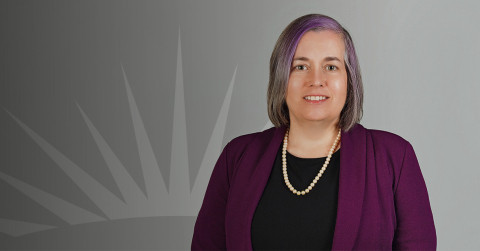
Learning Actuarial Skills in an Unexpected Place
For college students across the country, the pandemic-disrupted summer of 2020 was one of last-minute internship cancellations. My own deferred internship plans took me outside of the actuarial industry and into work at a digital marketing agency as a salesperson. At the time, I was looking at my new role as a resume builder and a steppingstone to a future actuarial internship.
If there was one thing I was sure of, it was that my time spent dialing numbers would result in few contributions to building my skillset as an actuary. As it turned out, I couldn’t have been more wrong. My time cold calling provided some key learnings, and I walked away from selling with three big takeaways that directly apply to my job as an actuarial analyst.
Takeaway 1: Start with the high-level ask and allow the other person to solicit additional details if necessary
During my time at the digital marketing agency, my biggest fear was calling a business to offer our services and having to answer the CEO on how we would implement our strategy. Since I didn’t know anything about digital marketing, that question terrified me. But I was never asked – not even once.
It turned out that those particular details were not important at all. As an actuarial analyst, I recognize that I have a similar tendency to focus extraneous time on the details when getting help from a tenured colleague. Instead of explaining a situation in deep detail, I learned I should not distract colleagues from the big picture, or from issues or problems that they may identify. I’ve begun to discover that silence is your friend. The consistent approach I now utilize is to pause after explaining something to let my colleague process thoughts and probe further, if needed, or articulate their experience. I’ve found this to be a helpful strategy for me (although, to be honest, it wouldn’t hurt to reread this paragraph every now and then.)
Takeaway 2: Recalibrate often
I’ve found it’s easy to stay focused for too long on a task that may not be fruitful in the end. In cold calling, I set a fatal goal: having the highest percentage of successful sales calls. That target was a catalyst for conversations droning on that were never going to be a sale in the first place.
My sales teacher, on the other hand, spent less time per call, because he was able to identify failed sales quicker than I could. At the end of the day, he would have more “yes-es” than me, even when he spent less time working. I learned that too much focus caused me to lose perspective.
The lesson I took away is to implement 50-minute intervals in my work as an actuarial analyst. That means for 50 minutes I can have my nose to the grindstone doing whatever I need to do, but then allow some time to stop and step back. These breaks allow me to recalibrate what remains to get done and identify if it’s time to move on to another task.
Takeaway 3: Connect with others on a more personal level
A salesperson’s greatest strength is to differentiate themselves from the hundreds of other salespeople calling every day. My sales coach had a knack of sounding like he was talking to an old friend even when speaking with a stranger. It was common for him to ask questions about how the other person was doing or what fun activity they might have planned for the upcoming weekend.
I learned the value of personal connections. They are so important, because connection—and appreciating the people around you—helps you do your job better, stay more engaged and enjoy the process more, too.
The simplest trick I learned to enhance connection with someone is to use their name. This is even easier now with the virtual environment. In How to Win Friends and Influence People, Dale Carnegie writes, “…remember that a person’s name is, to that person, the sweetest and most important sound in any language.”
An excellent example of this came during my Pinnacle welcome lunch. An invitation was sent out to the entire office to come to “Alec’s Welcome Lunch.” Seeing my name on the invitation provided me an emotional connection – rather than simply reading “Welcome Lunch.” Remember, asking questions about someone’s life is always a bonus. But if you can’t think of any, just use their name. It’s a great place to start.
When I began my time telemarketing, I did not think my experience would add much to my career as an actuary. However, I learned that there are lessons and takeaways everywhere, all the time, if we remember to stay open to them.
Alec Panayotov is an actuarial analyst in Pinnacle’s Chicago office. He graduated with a bachelor’s degree in actuarial science from the University of Illinois at Urbana-Champaign in 2021. He has experience in pricing, reserving, and predictive analytics in actuarial consulting.



